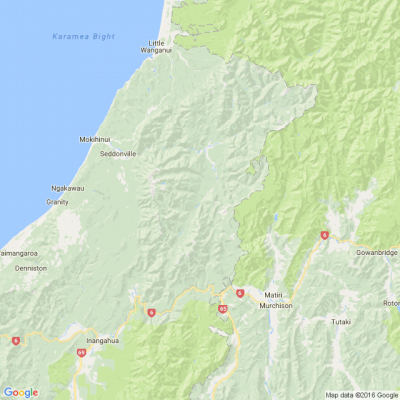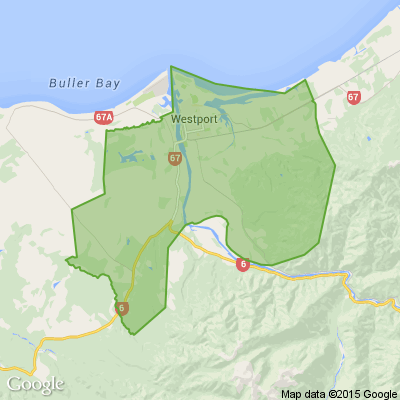Shock of losing daughter in Burnham house fire 'hasn't lessened'
By local democracy reporter Lois Williams:
Franz Josef community leaders are urging the West Coast Regional Council to think twice before saddling them with a $4 million debt for flood protection.
The Government has offered the council $6 million to build stopbanks protecting farms and lifestyle blocks on the south banks of the Waiho River opposite the town, if ratepayers contribute the remaining $4m.
The sum would also cover extensions to a stopbank on the north bank protecting Franz Josef’s sewerage ponds.
The council is contacting property owners this week by mail with details of the loan offer and what they would be up for in special rates.
It has previously said a $400,000 property would pay an extra $1076 a year and an $800,000 one would pay $2152, over a ten-year loan period.
Just north of Franz Josef, Stony Creek resident Adam Haugh said he and his neighbours, who live out of the flood zone but still pay rates for stopbanks, were nervous about the deal.
“Maybe it will be acceptable to pay $500 a year to protect Franz Josef infrastructure that makes the village liveable. We all wait with great expectation to see if the council has come up with something sensible."
The most sensible thing in his view, would be to get rid of some stopbanks and let the river go to the south, away from Franz Josef.
That would mean sacrificing some south bank farms that are under repeated attack from the rampaging river, whose bed grows higher by the year as rocks tumble down from a retreating glacier.
But if nothing changed, Franz Josef’s sewerage ponds would have to be moved away from the river, costing an estimated $10 million, Haugh said.
“If we could release the river to the south, not only do we save the cost of a stop bank loan, we’d actually save the $10m cost of having to build a new sewerage plant.”
The regional council’s core business was building and maintaining stopbanks, Haugh said, and several councillors had experience in the associated industries.
“That’s their thing. They’re very good at it, but I wonder if they’d ever make a pitch to the government to actually get rid of a stopbank?”
With the government’s $6 million and the ratepayers’ $4m, the lower Waiho farms could be bought up at valuation, and the river let go, ultimately saving money for the government and ratepayers, Haugh said.
Figures provided by the regional council show a valuation of just over $13m for 26 lower Waiho rateable properties.
But the regional council told Franz Josef ratepayers last month that the government grant and loan money cannot be used for that purpose.
Adam Haugh is not the only one urging a rethink.
Business man Logan Skinner, a north bank representative on the council’s Franz Josef Special Rating District’s joint committee, says the stop banks have a design life of just 10 years.
Asking a small ratepayer base to take on a $4m debt for a temporary solution to protect about 30 south bank properties makes little economic sense, he said.
“The stop banks might last longer – or they could be swept away or damaged sooner – and what do we do then? Go back to the government and say ‘Please sir can we have some more'?"
The original 10-year ‘hold the line’ approach was based on a buyout happening, but that had now been scrapped with no alternative long-term plan in place, Skinner said.
Another Franz Josef ratepayer, Ian Hartshorne said north bank residents would foot most of the bill for the south-side stopbanks.
The south and north banks previously had separate rating districts, but at the government’s insistence they were combined last year.
“Now we’re all back into a joint venture, the town’s going to pay for most of it – over 90% of the bill - because the properties on the south side are pretty worthless.”
Westland mayor Helen Lash says the south bank properties are worth a lot more than $13-million including some very productive farms and cutting them loose would devastate the community.
“If you lose the south side, you lose about 40 residents from Franz Josef. You lose kids at the school, and some key players in the real community. On the north, it’s mainly the tourist businesses.
“We know the south side people bought there because the land was at risk and cheaper, but they’ve invested heavily in their properties and they’re the heart of the Franz Josef community."
One day the river would have its way and take out the Waiho flats, the mayor agreed.
"But as Minister Shane Jones has told us, there’s no money in world that could cover the cost of relocating the number of New Zealand townships that were built in volatile places.
“If they did it here, they’d have to do it everywhere. A buy-out is just not on the government’s table."
Meanwhile, the big conversation that should be happening about a long-term plan for Franz Josef has been once again kicked for touch, the mayor says.
“If we’re buying time by building stopbanks, what for? What are we going to do with that time to somehow secure a future for those south side residents?
“That is the plan we should be working on with the government and I think it’s clear our Westland district council will have to lead it.”
*LDR is local body journalism co-funded by RNZ and NZ On Air.
Poll: Should the government levy industries that contribute to financial hardship?
As reported in the Post, there’s a $30 million funding gap in financial mentoring. This has led to services closing and mentors stepping in unpaid just to keep helping people in need 🪙💰🪙
One proposed solution? Small levies on industries that profit from financial hardship — like banks, casinos, and similar companies.
So we want to hear what you think:
Should the government ask these industries to contribute?

-
59.8% Yes, supporting people is important!
-
25.8% No, individuals should take responsibility
-
14.4% ... It is complicated
A Neighbourly Riddle! Don’t Overthink It… Or Do?😜
Do you think you know the answer? Simply 'Like' this post if you know the answer and the big reveal will be posted in the comments at 2pm on the day!
If you multiply this number by any other number, the answer will always be the same. What number is this?

Have you got New Zealand's best shed? Show us and win!
Once again, Resene and NZ Gardener are on the hunt for New Zealand’s best shed! Send in the photos and the stories behind your man caves, she sheds, clever upcycled spaces, potty potting sheds and colourful chicken coops. The Resene Shed of the Year 2026 winner receives $1000 Resene ColorShop voucher, a $908 large Vegepod Starter Pack and a one-year subscription to NZ Gardener. To enter, tell us in writing (no more than 500 words) why your garden shed is New Zealand’s best, and send up to five high-quality photos by email to mailbox@nzgardener.co.nz. Entries close February 23, 2026.









 Loading…
Loading…





